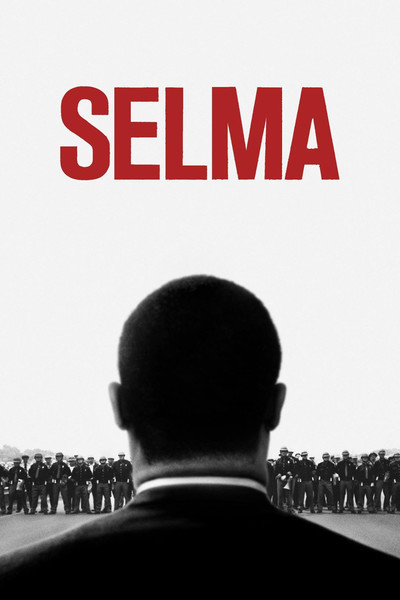Tags
"Selma", Ava DuVernay, Carment Ejogo, Coretta Scott King, Dr. Martin Luther King, LBJ. David Oyelowo, MLK, Paul Webb, Pres. Lyndon Johnson, Tom Wilkinson

Selma *****
If you lived through the 60’s, then there is a lot in this film that you will remember and some that you may have forgotten or not known. But it’s certainly a film to see.
If you are of a later generation and only know MLK because of his “I Have a Dream” speech and/or because of a national holiday that now takes place in his honor, I hope you’ll see this film.
Similar to the recent film Lincoln, where the focus was on a slice of President Lincoln’s life, so too is Selma a slice of a man’s life, Martin Luther King’s life.
Know that Selma is not a biography of King, but as is sometimes the case, when we look at a part of the whole, we can learn and see perhaps much of the whole. It also leaves room for the imagination and the opportunity to seek further information.
Written by Paul Webb and Ava DuVernay and directed by DuVernay, the film tells the story of what happened in 1965 over approximately a three-month period in Selma and how that period led to a passing of the Voting Rights Act of 1965, perhaps the most significant legislation of that decade (my opinion).
It is also the story of King and the role he played at Selma and in the civil rights events of the 60’s. But more than that, we get a view of King with his doubts, his insecurities, his troubled marriage, as well as his victories and triumphs.
It’s also more than King’s story.
It’s partially his wife Coretta Scott King’s story too, just as it is the story of all the other actors and participants of those three months (Pres. Johnson, Alabama Gov. Wallace, Sheriff Jim Clark, and a host of civil rights activists and citizens).
And it is the story of how two of the giants of our political world in the 60’s, LBJ and MLK used each other and worked together to make major changes in civil rights in this country.***
The acting is superb through out. Somehow, I was able to stop thinking of physical comparisons to the real people and just watch the film as DuVernay presents it. David Oyelowo (MLK), Carmen Ejogo (Coretta Scott King), Tom Wilkinson (Lyndon Johnson) and the rest of the cast allow the events of the time to take precedence (over their individual presence).
How timely a film this is. Not only is it about to be the 50th anniversary of the events in Selma, but we are also under going a retrenchment in the gains made through the ’65 Voting Rights Act. (As readers of this website probably know, one of the issues that most disturbs me about what is happening in our country is the movement, the success/dismay actually, in the increasing efforts to curb voting rights.)
The film opened on Christmas day in limited theaters. It will have a wide release on January 9th.
(***A controversy has arisen over the portrayal of the LBJ/MLK relationship as shown in Selma. Defenders of LBJ are saying that the film unfairly paints him as more opposed to taking action on voting rights than in fact he was, does not accurately portray what happened between LBJ and MLK and does not give LBJ adequate credit for what he accomplished. If there is some accuracy in that, in my opinion, it’s only a matter of degree. My take from the film was that LBJ and MLK used each other and the events of the time to move the country.)


Nancy Cedar Wilson said:
This is a fine movie indeed! And all the more exquisitely painful when we realize these hard-won gains seem to be slipping away in some states! Let’s hope this film will re-awaken the social consciousness needed to battle the re-establishment of impediments to voting rights for all!
Kathy Kiely said:
I also am looking forward to the film, though I found Joe Califano’s column in yesterday’s Washington Post very compelling. Bottom line: It’s great that the movie is promoting this kind of retrospective. As Santayana famously said, those who do not know history are condemned to repeat it. Personally, I never have been confident that Obama’s election exorcised America’s original sin: Within a few months of his inauguration, I saw an amazing exhibit at the NYC public library about French writers under the Nazi collaboration. It was the first time I realized that a few years before WWII, that nation had elected its first Jewish premier, Leon Blum. I am sure many French people saw that as an end to their nation’s history of anti-Semitism. But within a few years, Blum was in a concentration camp (happily, he survived).
My point is that, while the arc of history does bend toward justice, it’s progress is not necessarily steady or guaranteed. So I’m glad we’re looking back. Personally, I will never forget watching LBJ utter the words “and we shall overcome” before a joint session of Congress. That moment on black and white TV is as indelibly etched on this boomer’s memory as Neil Armstrong’s first words from the moon. Both LBJ and MLK were titanic characters who prove what makes America great: We have a system that allows greatly flawed people to do great things.